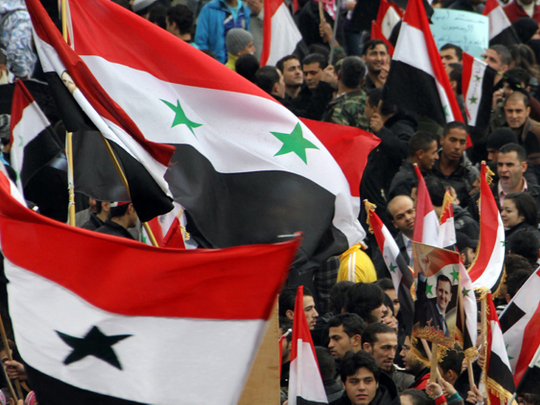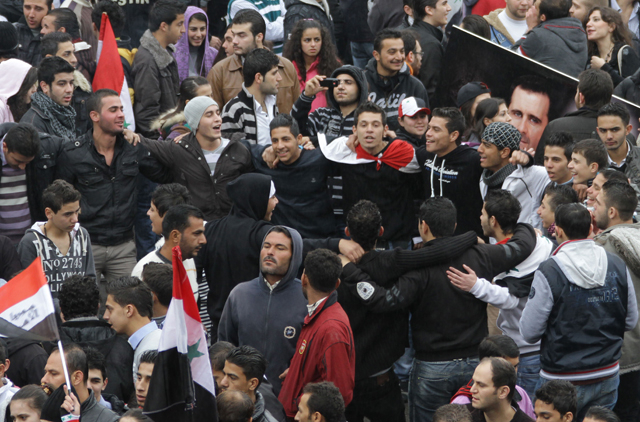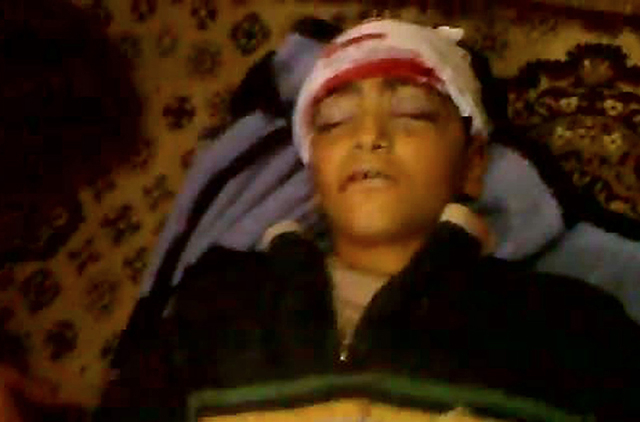
Moscow: Russian Foreign Minister Sergei Lavrov said on Thursday that an attack by Syrian army defectors on an intelligence complex resembled civil war and reiterated Moscow's call for talks between Syria's government and its opponents.
He said such talks should take place at the Arab League headquarters.
"We see television reports that say some new force, the so-called Free Syrian Army I believe, organised an attack on a government building... belonging to the Syrian armed forces. This is already completely similar to real civil war," Lavrov told reporters after a meeting with Indian Foreign Minister S.M. Krishna in Moscow.
Russia: Al Assad's opponents share blame
Russia has called on Assad to implement promised reforms faster but says his opponents share blame for the violenceo.
Russia joined China last month in vetoing a UN Security Council resolution that would have condemned Assad's government.
Arab League suspends Syria
Rabat, Morocco: The Arab League has confirmed the suspension of Syria from the organisation and given its government three days to halt the violence and accept an observer mission or face economic sanctions.
The suspension - first announced by the Arab League on Saturday and confirmed during Wednesday's meeting - is a surprisingly harsh and highly unusual move for a member of Syria's standing.
More than 3,500 protesters killed
Qatari Foreign Minister Shaikh Hamad Bin Jasem told reporters following the day-long meeting in Rabat, Morocco, that Syria is being offered the chance to end the violence against civilians and implement a peace plan that the Arab League outlined on November 2.
The UN estimates that more than 3,500 people have been killed in Syria's eight-month-old uprising.
"The Syrian government has to sign the protocol sent by the Arab League and end all violence against demonstrators," he said, adding that it has three days. "Economic sanctions are certainly possible, if the Syrian government does not respond. But we are conscious that such sanctions would touch the Syrian people."
Observer mission called for
The protocol calls for an observer mission of 30-50 members under the auspices of the Arab League to ensure that Syria is following the Arab plan, calling for the regime to halt its attacks on protesters, pull tanks and armoured vehicles out of cities, release political prisoners, and allow journalists and rights groups into the country.
The protocol did not specifically say if Syria's suspension from the organisation has remained in force, but an official from the Moroccan Foreign Ministry confirmed that is the case. He spoke on condition of anonymity because he was not authorised to talk with the media.
The Arab League also demanded the withdrawal of Syria's representative to the organisation.
"In the light of insulting and undiplomatic words of the permanent Syrian representative, the Arab League is asking the Syrian government to withdraw its representative," said the League statement, without identifying the behaviour in question.
Foreign intervention
The Arab League has rarely taken decisive actions to deal with crises in the Arab world out of reluctance to criticise fellow governments. But in this case, several members have described their forceful engagement in the Syrian situation as a way of staving off the kind of foreign intervention that took place in Libya earlier this year.
Nato's bombing campaign against Libya took place less than a month after it was suspended by the Arab League on February 22.
"Arab leaders don't have a legacy of commenting and interfering in domestic events in Arab countries, so now this is a turning point for the Arab League," said Jamal Abdul Jawad, a Cairo commentator on Arab affairs.
"Arab governments are being exposed to pressure from their public, from the Syrian people and on the international level, so the Arab League has to do something - they can't keep staying on the sidelines," he added.
Increasing concern
Even Turkey, which once had close ties with Syria, has expressed increasing concern over the situation across the border.
"We denounce the mass murder of the Syrian people," said Turkish Foreign Minister Ahmet Davutoglu, who was in Morocco for a meeting on Arab-Turkish ties. "It is all of our responsibility to end the bloodshed in Syria."
Shaikh Hamad of Qatar declined to give any details about possible economic sanctions against Syria, if it refuses the observer mission. But the Arab news channel Al Arabiya suggested they would likely take place in coordination with Turkey and include the energy sector.
Its suspension from the Arab League has enraged Syria, which considers itself a bastion of Arab nationalism. Syrian Foreign Minister Walid Mua’alem boycotted Wednesday's meeting.
Sanctions
The threat of Arab sanctions comes on top of rising threats of sanctions from European countries and the United States as well leaving Syria even more isolated.
Arab League Secretary General Nabil Al Araby confirmed that the organisation has been in touch with the Syrian opposition and said it has identified 16 regions in particular that needed to be monitored.
"We have spoken with the Syrian opposition on all topics, but they never requested weapons," he added.
Qatar, which chairs the Arab League committee on the Syrian situation, has been particularly forceful on resolving the situation and Shaikh Hamad expressed a degree of impatience about the continuing bloodshed and violence in the country.
"We want solutions, not (more) speeches. The killing must be stopped," he said.














